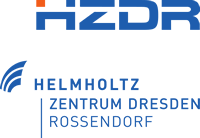We are looking for a candidate for a Ph.D. fellowship application in the field of mineralogy and mineral trapping of CO2 in recycled concrete. This is a collaborative project between the ISTerre (CNRS & Univ. Grenoble Alpes) and Heidelberg Cement. Research supervisors Dr. Alejandro Fernandez-Martinez (ISTerre, CNRS & Univ. Grenoble Alpes, France) Dr. Maciej Zajac and Dr. Mohsen Ben Haha (HeidelbergCement, Germany)
Context:
The use of concrete has been growing continuously in the 20th and 21st centuries. Today, the Portland based concrete is the most important material of our built environment. The manufacture of cement, the ‘glue’ in concrete, is associated with significant CO2 emissions accounting for approx. 7% of the anthropogenic CO2 emissions in the world. The current global warming crisis and the significant consumption of natural reserves have pushed the building industry to search for new and sustainable solutions. New breakthrough technologies for lowering the CO2 footprint include carbon capture in combination with storage and utilization (CCU) whereas a circular utilization of demolished concrete and improved waste recycling methods may reduce the use of natural resources. Mineral carbonation is a promising CCU technology, which is feasible for applications within the construction industry. The basis of this approach resides on the reactions between the hydraulic cement components and their hydration products with carbonate ions (from the injected CO2) in a humid/aqueous medium, which lead to the formation of carbonate minerals and therefore to the permanent storage of the CO2 in solid form. Research by HeidelbergCement have shown that most of the CO2, originally released by limestone calcination during clinker production, can be sequestered by carbonation of the recycled cement pastes (RCP), provided that the paste is separated from the sand and aggregates. Fully carbonated RCP is composed of calcium carbonate and an alumina-silica gel with pozzolanic properties, implying that the carbonated RCP can be used as a supplementary cementitious material.
Purpose and scope of the PhD project:
The project will have several goals regarding the physico-chemical understanding of the calcium carbonate precipitation reactions at conditions relevant for the industrial mineralization:
- To understand the nucleation and precipitation mechanisms of calcium carbonate from high ionic strength solutions
- To extend the knowledge on the impact of the solution speciation on the calcium carbonate precipitation including the effect of the additives used in the cement industry 2
- To develop new know-how about the mechanisms controlling polymorph selection and morphology
The scope of the project includes:
- Experiments on the formation of calcium carbonate from the high ionic strength solutions by carbonation of them and verification experiments based on the synthetic and industrial materials
- Application of the new advanced (synchrotron experiments) and traditional techniques to progress the understanding of the formed phases, measurements of the solution concentration experiments
- Analysis of the data based on the classical and non-classical nucleation and precipitation theories
- Close collaboration between University Grenoble and global R&D of HeidelbergCement Benefits The student will be based at the ISTerre laboratory in Grenbole (France).
She/He is expected to work in close collaboration with the researchers from the Geochemistry group of ISTerre, which has a wide experience on carbonation reactions and in the advanced characterization of carbonate mineral nucleation and growth pathways. The student will be in contact with the HeidelbergCement scientists and engineers, and is expected to spend short research stays working at their laboratories in Germany. At the end of the Ph.D. period, the candidate will acquire a solid experience on the mineralogy and reactivity of cement, carbonation reactions, on advanced physico-chemical characterization methods and on circular economy concepts. The student will participate to several national and international conferences, and is expected to publish its results in peer-reviewed international scientific journals.
Requirements:
The candidate must have a degree in engineering or have a Master or similar diploma in chemistry, physical-chemistry or geochemistry obtained before the beginning of the Ph.D. thesis (~March/April 2022). The candidate will be offered a competitive salary. The duration of the Ph.D. thesis is 3 years. The student will be enrolled at the University Grenoble Alpes.
Candidates must have experimental capabilities for laboratory experiments, and must be able to work within an international and multidisciplinary team. She/He must have good communication skills and speak English fluently. Applications including curriculum vitae and statement of interest will be evaluated as received, with no specific deadline.
Please send your application documents to:
Dr. Alejandro Fernandez-Martinez
ISTerre, CNRS & Université Grenoble Alpes 1381 rue de la Piscine | 38041
Grenoble Cedex 9 | France
Phone: +33 4 76 63 51 97
E-mail: [Email Address Removed]

 Continue with Facebook
Continue with Facebook



